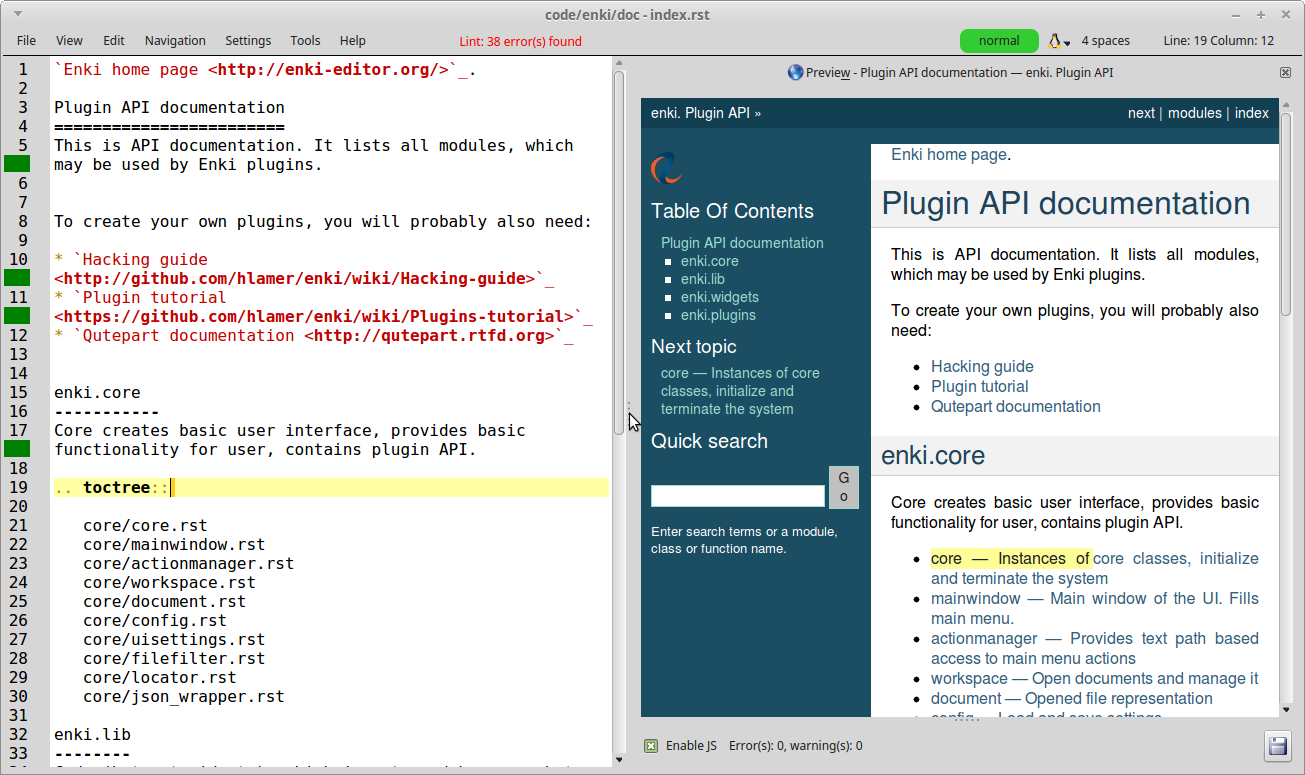-
Notifications
You must be signed in to change notification settings - Fork 38
Sphinx
"Sphinx is a tool that makes it easy to create intelligent and beautiful documentation" [1]. It provides additional features lacking basic reStructuredText, including the ability to link together many documents (such as all the files in a program's source code). Enki's powerful editing capabilities combined with Sphinx's beautiful formatting provide the ability to rapidly create high-quality documents. The tutorial provides a gentle introduction; this page provides a reference manual.

All Sphinx settings are defined by by selecting Settings | Settings... from the main menu, then choosing the Sphinx tab. These are:
- Enable Sphinx project: when checked, Sphinx will be run when any file in the project path or its subdirectories is edited.
- Project path: this defines the source directory for a Sphinx project.
- Output path: this defines the build directory, where the resulting Sphinx documentation is stored.
- Sphinx executable path: The path to the
sphinx-buildexecutable. This only needs to be changed ifsphinx-buildis not in the system path. - Rebuild Sphinx projects: Sphinx will be invoked when a file in the project path or its subdirectories is saved or modified, depending on the selection made.
- Advanced mode: You may enter a command line to invoke
sphinx-build, along with any project-specific options desired. See the manual for details.
The Tools | Set Sphinx path menu item sets the Project path to the project directory displayed in the File Browser. This makes switching between several Sphinx projects easier.
| [1] | http://sphinx-doc.org/index.html |